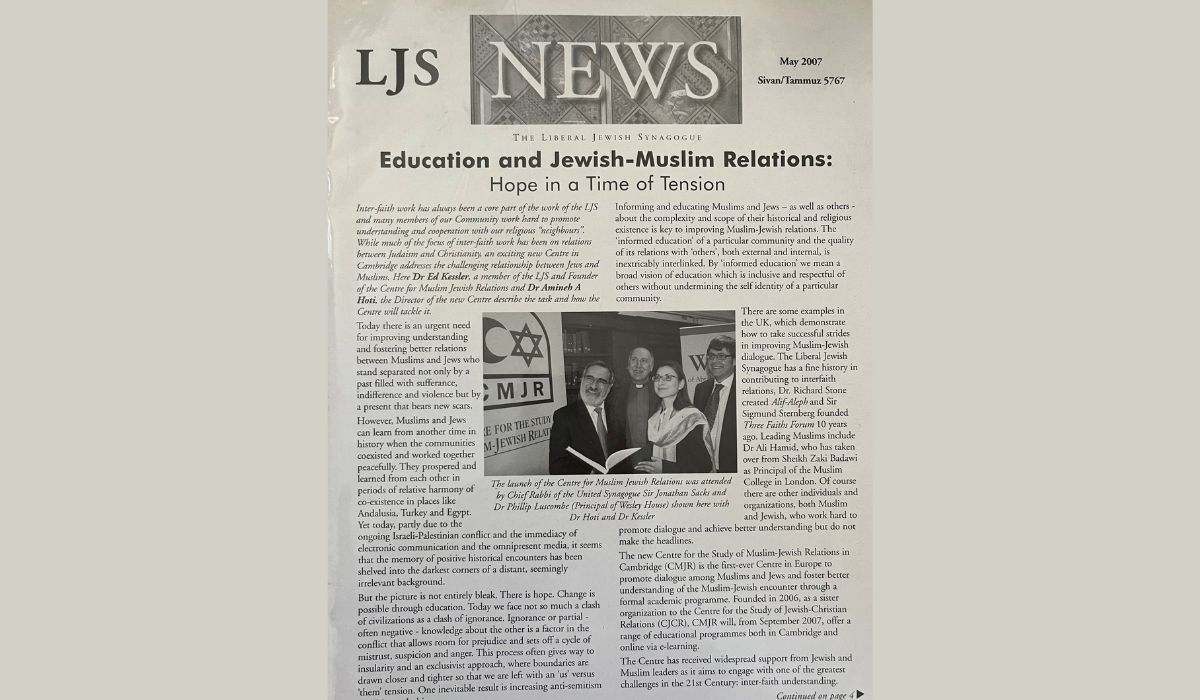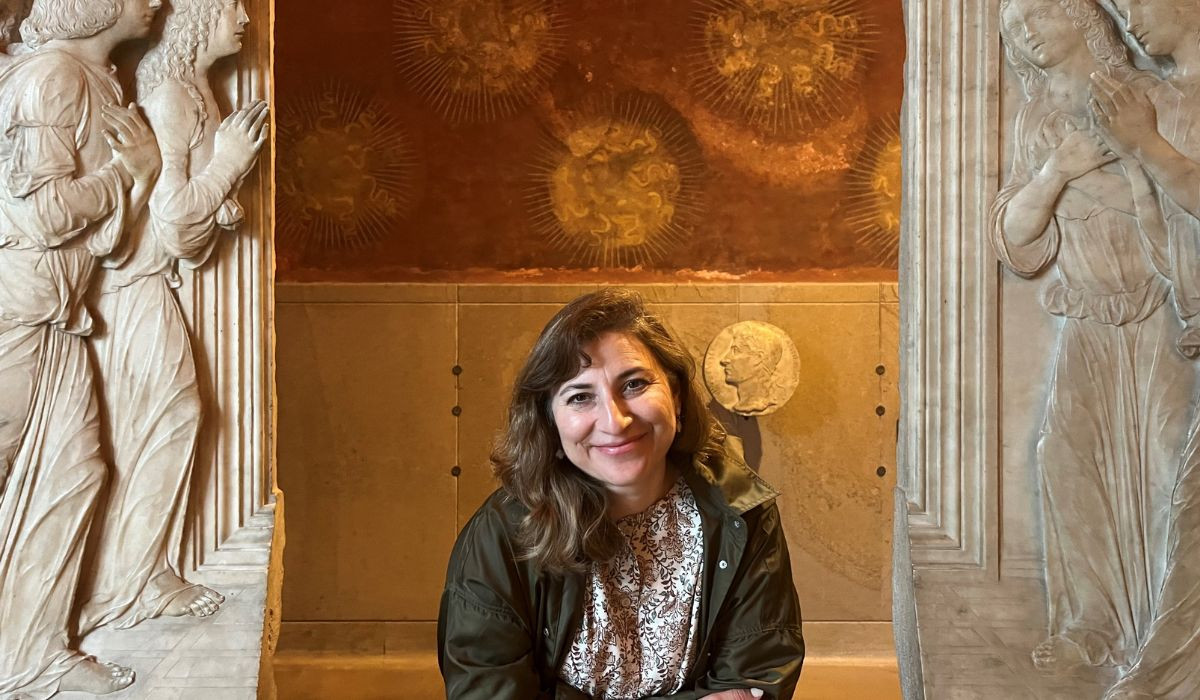Alumna and Fellow-Commoner, Dr Amineh Hoti, aims to highlight and share the best practices that enable and cultivate women as peace-builders.
I came from South Asia, and good quality education was very highly valued and prized by my family and myself. When my father was posted as Assistant Commissioner in Waziristan, one of my first schools was under a tree, no walls, no desk, so when I got admission into the Murree Convent, I was thrilled till my parents left that evening and then, in class 3, I felt the loneliness of a boarding school. I knew no one and I began to walk that journey all alone, until I met other little girls like me, who cried themselves to sleep in those first nights at the boarding school. It became our dream to leave the Convent school one day, even though it took me eight years of successful studies before I graduated. It was a hard life. But I learnt to read, write neatly, dress neatly in uniform, speak proper English, and even excelled by working hard and getting a First division. The day I left I was delighted, the freedom seemed unreal and yet when one of the seemingly cruellest nuns bid me goodbye, I wept in a gesture of loss at her shoulders.

After the London School of Economics (LSE), I was keen to do a PhD in Anthropology so I applied to both the Universities of Oxford and Cambridge and to my surprise got acceptance letters from both! I did my PhD at Lucy Cavendish College. I was very lucky to get in, and the College looked after me very well over the decades I went from student to Fellow-Commoner. I now see Lucy as “home”.
At LSE, I had studied anthropological books that talked about so-called “natives” as “savages” and women from South Asian veil observing societies as “ghost-like”. Surely this language was not very representative, thoughtful, empathetic or sensitive. In my own research, I wanted to challenge myself as an anthropologist if I could use language that is more respectful and inclusive of the gendered Other! So when I went to Swat and Mardan for fieldwork I interviewed many women and men, describing them to the best of my ability, from their own point of view. Being from the area helped me avoid being ethnocentric. I loved the empowered ability of the pen and the author to give voice to women, the marginalised and those not seen or heard.
I felt there was always a fuller picture when all human beings in their diversity, regardless of whether they are male or female, when their multiple perspectives are represented. This nurtured notions of empathy within me to hear and see those people we often give less value to. If the United Nations, where later for one specific project I became Senior Consultant on countering hate, respected all human life, then why were we only seeing and hearing the most powerful and not the weaker or less dominant group? I became interested in the perspective of women, minorities, the homeless, the impoverished, the underprivileged, the disadvantaged, the races, ethnicities and peoples who were labelled, stereotyped and persecuted. I felt pain for them every time there was injustice.

I had seen Malala, a young girl from my mother’s home town in the beautiful valley of Swat, being shot by the Taliban for striving for an education. In an ideal world, I wished every girl and boy would have the opportunity for full education up to university level. But in reality few privileged people did, myself included. I wish I could give a hand, and help others in some way. I love that Lucy Cavendish put up a superb eco-friendly building with a donation they received, and specially constructed it for those with special needs. This inspired me. A tour around the building uplifted me. I loved that the College I have seen grow for decades still progresses.
Lucy Cavendish and all its body of staff and governance has given me and all its students a lot of respect. I have spent many decades here and have a deep sense of respect and loyalty towards the College and institution. I want to see Lucy grow further, thrive and take its place on the world stage where such important dialogues happen.
So, my hope for Lucy is to take the lead, with more colleges and universities to follow, in creating spaces for interdisciplinary subjects that create individuals who are capable of getting superb jobs in the world while being understanding, empathetic and caring global citizens. This can be done through cutting-edge subjects, student exchange programmes across continents and across the pond, and zoom conferences that bring about different institutions across our globe.

One such collaborative effort is an ongoing conversation between myself and other colleagues from Lucy Cavendish College, Dr Majeda from the University of Jordan, Dr Saima from Fatima Jinnah Women’s University and Mrs Charlotte Avery from St Mary’s School Cambridge. We are still in conversation about final details. The aim will be to organise an International Dialogue Seminar, on the occasion of the 75th anniversary of adopting the Universal Declaration of Human Rights (UDHR) in 2023 by the United Nations General Assembly.
This proposed seminar entitled Women and Peace-building in Local Communities will be held on Zoom.
The objective of this seminar is to highlight and share the best practices that enable and cultivate women as peace-builders. In these challenging times of conflict, natural disasters and humanitarian crises, women’s role stands out as most crucial in sustaining peace, protecting human dignity and enhancing sustainable development. The aim throughout is to examine women’s role in building equal, resilient, sustainable and peaceful communities. It is essential to emphasise partnership for our common humanity.




